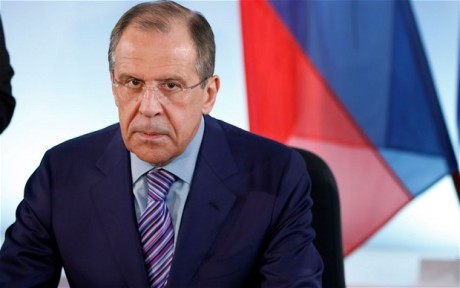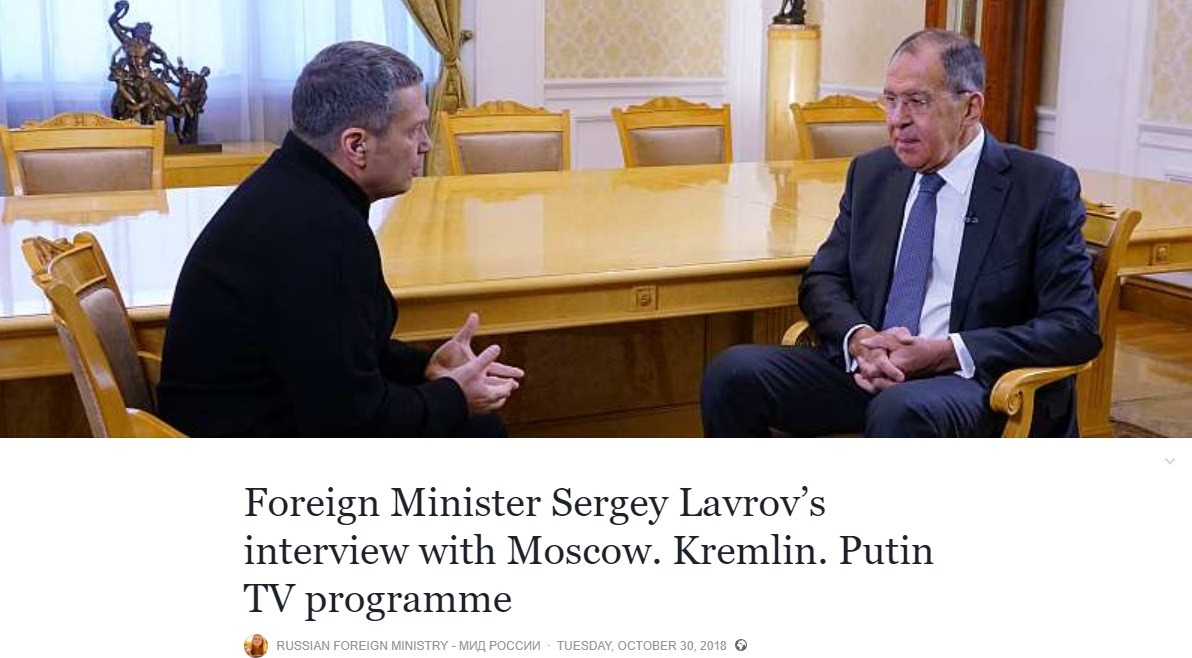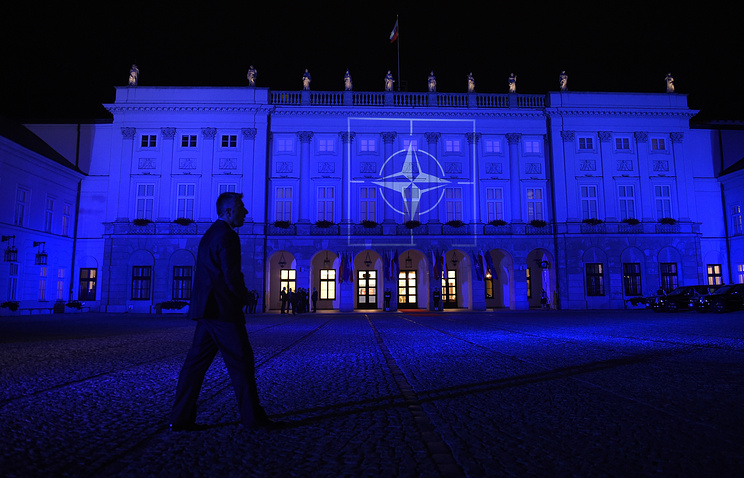Russia is alarmed by NATO's policy to actively militarize the European continent, Defense Minister Sergei Shoigu said Monday.
29.10.2018 - Russia Alarmed by NATO's Policy to Militarize Europe - Russian Defense Minister
Russia Alarmed by NATO's Policy to Militarize Europe - Russian Defense Minister
"We are following with alarm NATO's policy aimed at the active militarization of the European continent. We see efforts being made to involve more and more NATO [member] countries, I mean the Balkans first of all," Shoigu said at a meeting with Greek Defense Minister Panos Kammenos.
Earlier in the day, Shoigu said that if NATO doesn't put an end to confrontation, a return to normal relations between the alliance and Russia will be impossible.
The statement of the defense minister comes amid upcoming Russia-NATO Council session at the level of ambassadors scheduled October 31.
NATO has been significantly expanding its presence in Eastern Europe following the outbreak of the Ukrainian crisis in 2014 using alleged Russian interference in the Ukrainian internal activities as a pretext.
29.10.2018 - Moscow: Russia-NATO ties won't Normalize until Bloc Drops Confrontational Policy
Moscow: Russia-NATO Ties Won’t Normalize Until Bloc Drops Confrontational Policy
Earlier, Russian Defense Minister Sergei Shoigu said that NATO’s military activity near Russia's borders has reached a level not seen since the Cold War.
If NATO doesn't put an end to confrontation, a return to normal relations between the alliance and Russia is impossible, Russian Deputy Foreign Minister Alexander Grushko said.
"Today it's obvious to us that if we return to the Russia-NATO relationship, there can be no restoration of normality unless NATO drops its current line of confrontation," Grushko said.
The Russian Permanent Mission to NATO confirmed Monday that the next Russia-NATO Council session at the level of ambassadors would take place on October 31.
"We confirm that a meeting of the Russia-NATO Council will be held on October 31. During the meeting, it is planned to discuss issues of defense security and prevention of dangerous incidents to de-escalate military and political tensions, as well as other relevant issues of European security," the mission said in a statement obtained by Sputnik.
NATO Expansion in Eastern Europe
NATO has been significantly expanding its presence in Eastern Europe after the outburst of the Ukrainian crisis in 2014 using alleged Russian interference in the Ukrainian internal activities as a pretext.
Moscow has repeatedly stated, in connection with the increased presence of the NATO armed forces at its borders, that it would not disregard actions potentially dangerous to its interests.
Moscow has many times asserted its protests against the NATO military buildup stating that this move will undermine regional balance and result in a new arms race.
29.10.2018 - Half Seas Over: US Troops go on Post-NATO War Games Binge in Iceland - Reports
Half Seas Over: US Troops Go on Post-NATO War Games Binge in Iceland - Reports
Four days after their start, the ongoing NATO military maneuvers in Northern Atlantic have already taken their toll on Iceland in another, rather less anticipated fashion - as the US representatives' predilection for alcohol caught local bar owners flatfooted.
According to Iceland Magazine, a massive contingent of booze-thirsty US sailors and marines managed to dry up several bars in Reykjavik, nearly draining the port city of alcohol completely.
Around six-to-seven thousand US servicemen hunkered down at the bars in downtown Reykjavik over the weekend, the media outlet estimates, as they were taking part in NATO's Trident Juncture war games. They reportedly preferred local beers over imports and expressed their apparent liking for micro brews as well as standard lagers.
In an attempt to beat back the "onslaught" of the American "invaders," Icelandic bar owners enlisted the help of delivery teams and their better-stocked competitors. However, these efforts were in vain, as they were "fighting an overwhelming force," said local blogger Eiríkur Jónsson
US forces docked in Iceland's capital as part of Trident Juncture, the biggest NATO war games in history, which involve more than 50,000 troops from 30 countries. The exercise is taking place in Norway and adjacent territories, including Swedish and Finnish airspace,
from October 25 to November 3.
The NATO military exercise has ignited rallies in several Norwegian cities, with protesters voicing their concerns over the nuclear arms race and further militarization of the country.
26.10.2018 - It's All Fun and NATO Games Until Someone Starts a War
It's All Fun and NATO Games Until Someone Starts A War
Trump signs a new law addressing opioid usage; Electoral politics and the propaganda of war-making; backlash against #metoo movement.
In the first segment of "By Any Means Necessary" Eugene Puryear and Sean Blackmon are joined by
Kina Collins, Healthcare advocate to talk about Donald Trump's new law addressing opioid addiction, what the bill gets right and wrong, the partisan nature of healthcare in America, and the interconnectedness between health, violence, and economics in communities.
In the second segment, we are joined by David Swanson, activist, journalist, radio host and author of the new book "Curing Exceptionalism" to talk about the start of the largest NATO war game since the Cold War, the Trump administration's efforts to remove the US from the Intermediate-Range Nuclear Forces Treaty, and the hypocrisy of the US criticizing Iranian and Chinese military efforts.
In the third segment "By Any Means Necessary" is joined by
Jeb Sprague, visiting faculty in sociology at the University of California-Santa Barbara to talk about the intersection between electoral politics, media censorship, and war-making, the elitism within government and DC thinktanks, the cozy relationship between the Washington Post and the CIA, and the powerful interests upholding US exceptionalism and xenophobia.
In the last hour "By Any Means Necessary" is joined by
Michelle Witte, Sputnik News Analyst,
Joanna Blotner, Organizer and Activist, and
Bob Schlehuber a new poll showing a backlash against the #MeToo movement, a lackluster report from the University of Maryland around the death of a college football player last June, Megyn Kelly being fired over her blackface comments, and the WWE holding its 'Crown Jewel' Show in Saudi Arabia.






